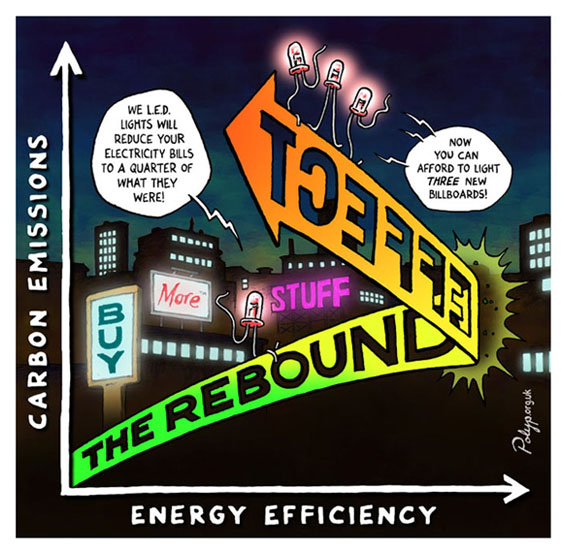Ever wanted to listen to the book "Vocabulary of Degrowth" because you prefer having an audio book over a physical one? Well, we hear you and share your feeling. That's why we started the "Vocabulary of Degrowth Audiobook Podcast". Currently we are recording individual chapters of the book and publish them as a podcast. This way we eventually get to record the entire book. The English version of the book is already 99% complete. Join us to add the other the languages such as German!
To get a taste of it, have a look at the website or subscribe to the podcast on iTunes if you just want to listen to it. If you're seriously interested in joining, send an email to Robert Orzanna.

Environmental protection is needed because we take useful things out of nature and put useless or harmful things back in. The resulting depletion and pollution have reached harmful, unsustainable levels. We know that voluntary behaviour change, led by an elite that encourages, fosters and politely ‘nudges’ the masses, won’t do it. Legislated solutions are needed on the principle of ‘I will if y...
Warum sozialökologischer Wandel nicht ohne eine Veränderung der Tiefenstrukturen unserer Wirtschaft zu haben ist. Von Fabian Scheidler Wer eine Zeitung aufschlägt oder Nachrichten hört, fühlt sich in ein Panoptikum von Katastrophenmeldungen veretzt: hier eine verheerende Dürre, dort ein zerfallender Staat, hier ein Terroranschlag, dort ein Finanz-Crash. Man kann alle diese Ereignisse als unzu...
Katja Kipping ist Vorsitzende der Partei Die Linke. Neben ihrem Engagement für gute Arbeitsbedingungen als sozialpolitische Sprecherin unterstützt sie den Austausch von Parteipolitik und Zivilgesellschaft durch ihre Aktivitäten in sozialen Bewegungen wie dem Netzwerk für ein Bedingungsloses Grundeinkommen. Für das Interview versetzen wir uns in eine mögliche Postwachstumsgesellschaft im Jahre 2030, um aus vorgestellter Zukunftsperspektive “damalige” [...]